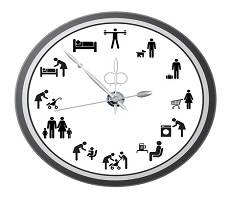December 1, 2014
New guidance on flexible work rights, which come into force today
 New flexible working law comes into force today, with shared parental leave (SPL) a new legal right which allows couples to share maternity or adoption leave and pay from 5 April 2015. This means that couples finding out now that they are expecting a child will be among the first parents eligible to take advantage of these new rights. Workplace experts Acas are advising employers and employees to familiarise themselves with the law and has produced a free detailed guide on SPL to help prepare employers and employees for the new changes. It includes a step by step guide on how eligible employees can notify their employer on their intention to take leave and advice for employers on how to deal with SPL requests fairly. According to estimates from the Department for Business, Innovation and Skills (BIS), there are expected to be around 285,000 working couples who will be eligible to share their leave from April. (more…)
New flexible working law comes into force today, with shared parental leave (SPL) a new legal right which allows couples to share maternity or adoption leave and pay from 5 April 2015. This means that couples finding out now that they are expecting a child will be among the first parents eligible to take advantage of these new rights. Workplace experts Acas are advising employers and employees to familiarise themselves with the law and has produced a free detailed guide on SPL to help prepare employers and employees for the new changes. It includes a step by step guide on how eligible employees can notify their employer on their intention to take leave and advice for employers on how to deal with SPL requests fairly. According to estimates from the Department for Business, Innovation and Skills (BIS), there are expected to be around 285,000 working couples who will be eligible to share their leave from April. (more…)































September 30, 2013
United States and Europe; closing the gap on flexible working law
by Debbie Kovak • Comment, Flexible working, Legal news
(more…)